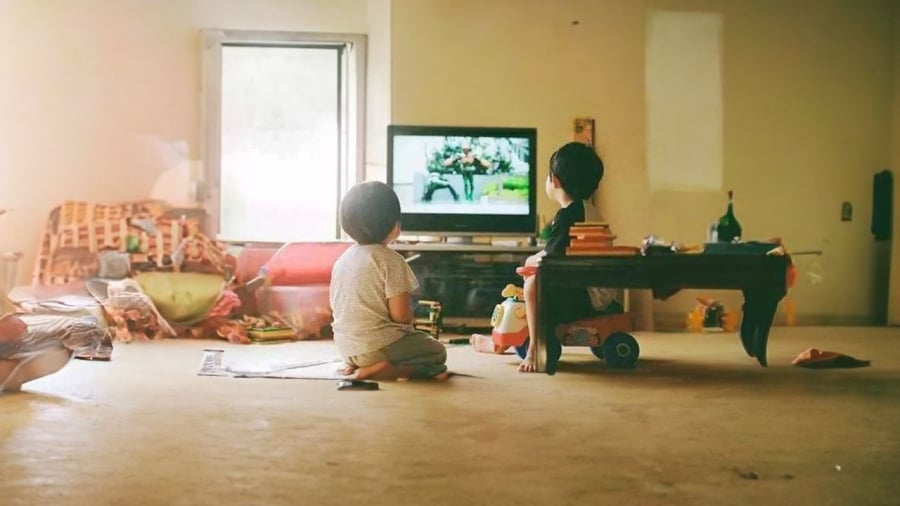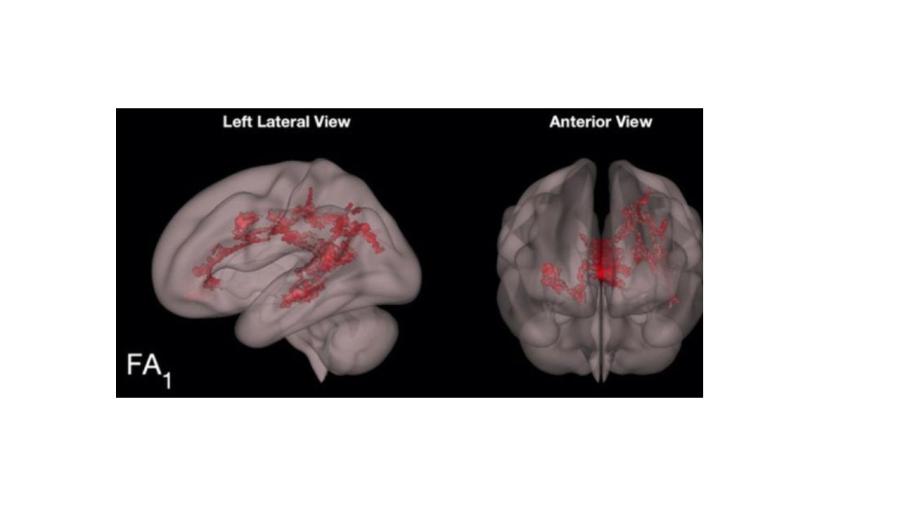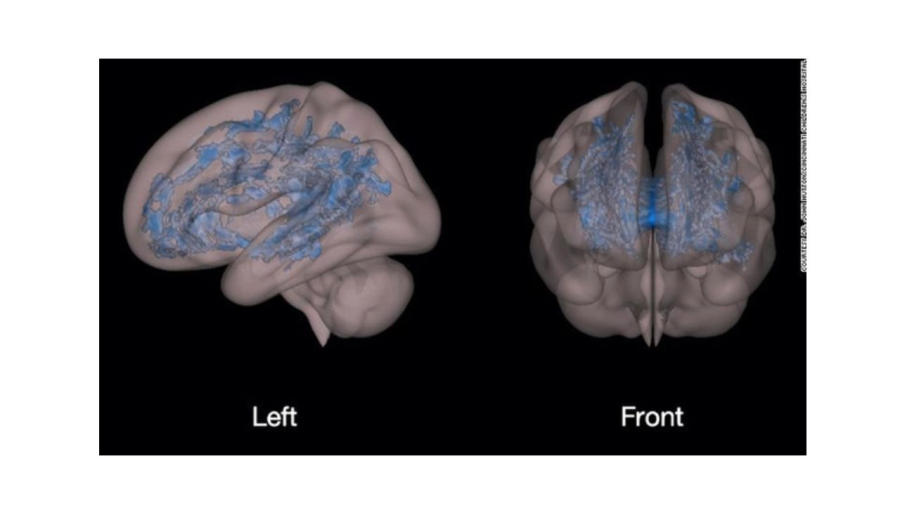Nowadays, when busy lives are intertwined with the development of technology devices, children are smarter and have access to technology earlier. But do you know that children’s brains prefer watching TV and using phones rather than reading books? TV and phones are even considered a “lifesaver” for busy parents, making it easier to take care of and feed their children. Because in front of a magical world on the screen, most children will sit quietly and attentively watch.
However, TV and phones have many negative effects, especially on the brains and intelligence of children.

TV and phones affect a child’s brain
A study by Alex Schlegel, from the Department of Neuroscience and Cognitive Science at Dartmouth College, Germany, showed that human imagination originates from a network of information gathering, images, and symbols throughout the brain. Harvard University conducted an experiment to see how TV and phones affect children’s imagination. They divided 10 babies into 2 groups: one group listened to a Snow White story and the other group watched it on film. Then, they were asked to draw their own fairy tale princesses from their imagination. The results showed that the princesses drawn by the two groups of children were completely different in appearance and small details. Most of the children who listened to the story had vivid imaginations, and the princesses they drew had more details. On the other hand, the group of children who watched the film had princesses in their imagination that were similar in details and colors.
Therefore, it can be seen that TV can strengthen children’s imagination. The children who watched the film saw the characters’ appearance and their brains remembered that. As a result, children will not fully express their own creativity like children who only know about characters through storytelling.
A study by the Reading and Comprehension Ability Discovery Center of Cincinnati Children’s Hospital (Ohio, USA) also showed clear differences in the brain images of children who like to watch TV and use phones compared to children who like to read books.

The brain image of a preschool-age child who regularly reads books: the red areas indicate an increase in organized white matter in the areas responsible for language and reading comprehension. On the other hand, the brain of a child who reads books shows an increase in organized white matter responsible for language and reading comprehension. Meanwhile, the brain images of children who watch phone and TV screens show underdeveloped and disorganized white matter in the areas that support learning.

The brain image of a preschool-age child who spends an average of 2 hours a day exposed to phone and TV screens. The blue areas indicate underdeveloped and disorganized white matter in the areas that support learning.
White matter is an important element in transmitting information between different parts of the brain, promoting functions and learning abilities. If there is not a well-developed information transmission system, the brain’s processing speed will be slow and hinder learning. This confirms the importance of reading books in the early years of a child’s life.
Influence on a child’s personality and behavior
Harvard University research conducted a 30-year survey and found that if a child is exposed to TV for a long time, their personality and behavior tend to be more negative and aggressive than other children.
That’s because not all programs are suitable for children, so when children watch inappropriate content, it affects their perception and behavior. TV contains many violent scenes, and children cannot distinguish right from wrong when they are still very young, so they will imitate. This is something that parents must be extremely careful about.
Tips for children to not become addicted to watching TV and using phones
TV and phones have useful content and effects in the age of technology. Therefore, they are not entirely harmful to children, but it is necessary to limit their usage.
British psychologist Dr. Siegman suggests that children from 3 to 7 years old watch TV for 30 minutes to an hour a day. Children from 7 to 12 years old watch one hour a day. Children from 12 to 15 years old watch an hour and a half a day, while teenagers over 16 can watch two hours a day.
Parents should set time limits from an early age to establish a routine. By limiting screen time, children’s vision, sleep, and concentration will not be affected because they have enough time for physical exercise and movement.
Parents should spend time watching and explaining the content on TV to their children so that they can better understand the content they are watching. At the same time, parents should explain clearly to their children why they cannot watch certain programs.
When parents and children watch and interact together, it increases the emotional bond in the family and promotes the child’s brain development.
































